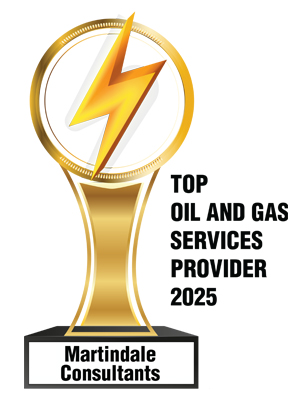Thank you for Subscribing to Energy Business Review Weekly Brief
Vendor Contract Compliance Audits in the Oil and Gas Industry
 Matt Pilkington, Vice President of Audit, Martindale-Consultants
Matt Pilkington, Vice President of Audit, Martindale-ConsultantsThe oil and gas industry is unique in that a significant portion of operations are performed by third-party vendors—often far from company headquarters and direct management. This creates both operational and financial risks to a company’s performance. Implementing a vendor audit program, and conducting vendor contract compliance audits, helps companies proactively manage and reduce this risk.
In this industry, terms like vendor audit, supplier audit, or contract compliance audit are often used interchangeably. All refer to the same process: reviewing a vendor’s books and records to determine whether invoices comply with governing contracts, such as the master service agreement, pricing agreements, work orders, or other contractual arrangements.
The benefits of a vendor audit vary based on a company’s objectives, but typically, they help answer questions like:
Are services billed reflective of actual services rendered?
Validating that hours billed match hours actually worked is a standard part of the audit process. This includes reviewing whether overtime and travel time are in compliance with pricing agreements and industry standards. Often, this level of review requires more than just a surface look at invoices—it demands a deeper dive into supporting records.
Were materials billed at the delivered quantities?
In other words, did a company receive what they paid for? A vendor audit includes confirming that goods were delivered as billed, that any returns were properly accounted for, and that appropriate documentation is in place.
Are prices compliant with governing pricing agreements?
Prices charged should align with the applicable pricing agreements—whether it’s a purchase order, scope of work, bid, or rate sheet. If any charges fall outside those agreements, there should be proper approvals. Markups on pass-through costs from subcontractors should also be consistent with the contract terms and industry standards.
Does the vendor carry insurance as required in the MSA?
When an MSA is signed, vendors are required to carry certain insurance coverage—and they must continue to maintain it over time. Verifying this coverage is critical for managing company risk.
-
It’s not enough to identify errors—we focus on uncovering the underlying causes and offering solutions that help prevent repeat issues
Are proper controls in place to prevent overbillings or fraud?
While a standard invoice approval process can’t match the depth of a vendor audit, it should still include basic controls to detect and prevent overbillings or flag irregularities. This includes requiring vendors to submit sufficient invoice detail to allow for review. Many times, this type of process can catch simple errors in real time—or highlight issues that need further investigation and evaluating the invoice approval process is part of the audit process.
Martindale’s Key Principles for Vendor Contract Compliance Audits
At Martindale, we take pride in providing audits that are thorough, respectful, and tailored to your needs. Here are the principles that guide our work:
• We get to the root of the issue.
It’s not enough to identify errors—we focus on uncovering the underlying causes and offering solutions that help prevent repeat issues.
• We approach every audit with professionalism.
Vendors are a vital part of your operations, and we treat them with the respect they deserve. We’re discreet when needed and always mindful of preserving your relationships.
• We bring deep experience to the table.
Understanding field operations is essential to a successful audit. Our team includes Certified Fraud Examiners, and we conduct thorough interviews to better understand vendor environments and go beyond just the numbers.
• We adapt to your goals.
Every company’s control environment is different. Whether you want to identify risk areas, strengthen controls, or maximize recoveries—we tailor our work to deliver value where it matters most.
Matt joined Martindale in 2008 after earning a B.S. in Finance from the University of Central Oklahoma. He is a Certified Fraud Examiner (CFE) and currently serves as the Chair of the COPAS Audit Committee and is an active member of the COPAS – Oklahoma City society and Association of Certified Fraud Examiners, Oklahoma City chapter. Matt is a project manager, specializing in joint venture expenditure audits, vendor audits, assisting clients with establishing proper accounting and allocation methodologies to ensure compliance with applicable agreements, and other projects. Matt has led or managed hundreds of audits and has developed innovative ways to analyze costs as technology has changed, and provides extensive experience to projects and development for Martindale employees.
Martindale is here to help.
Want to learn more about how vendor audits can protect your bottom line? Let’s talk.
| Share this Article: Tweet |




